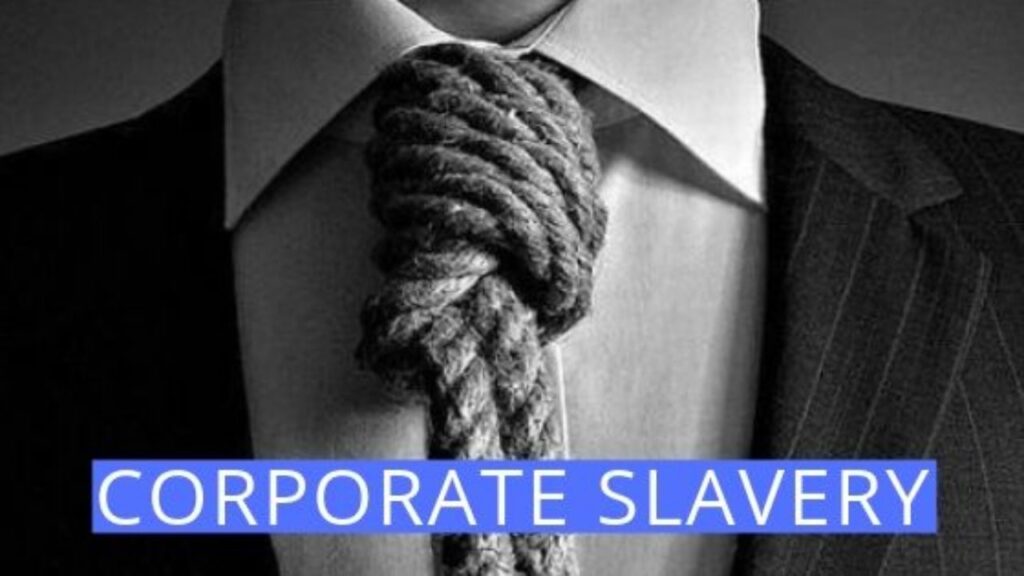How society has shackled the individual
History of working and its progress to modern wage slavery
Since the dawn of the birth of human history, work to gain resources has been the utmost importance for existence. The year is 7000bce, europe. A family surrounds a fireplace inside a cold, drafty and damp cave, the mother of 7 kids trying to warm the youngest of the family while the father teaches the eldest sons how to keep the fire. The first “job”, the firekeeper is thus created…
Later the father taught his sons how to make weapons, tools and using these skills and tools to hunt for survival, while the women were taught to gather.
Work was a necessity for survival in earlier times, it didnt take long for societys to form from individuals to families, clans and eventualy to tribes. Work was divided mostly by sex, age, prestige and physical prowess.
As societies evolved, the division of labor became more intricate, marking the transition from nomadic tribes to settled communities. With agriculture’s advent, individuals tilled the land, contributing surplus to communal stores. However, as communities grew, power structures emerged, introducing social hierarchies and control mechanisms.
Fast forward through ancient civilizations, feudal systems, and industrial revolutions — power consolidated. Amidst progress, a subtle conspiracy unfolded, harnessing the masses in an intricate web of control. Feudal lords became industrialists, and monarchies transformed into economic elites. The Industrial Revolution birthed factories, but it also birthed a new form of servitude – wage labor.
In the deceptive guise of progress, the individual, once connected to the land and craft, became a mere cog in the machinery of capitalism. The 9-to-5 work structure emerged, camouflaging chains of obligation as freedom. Privacy eroded as work infiltrated personal spaces through digital connectivity.
Today, the illusion of liberation persists. A person toils longer hours, yet proclaims freedom. Corporate structures, financial systems, and surveillance technologies form the bars of a modern cage. The conspiracy could be argued being a secret pact, a systemic evolution that enchains the individual, fostering the illusion of autonomy while perpetuating the demands of an insatiable economic engine. In this intricate dance, the chains may be less visible, but they grip tighter than ever before.
In medieval times, workers not only worked less than we do now. They had much more free time as well, we are sold a notion that today we are the most free we have ever been. What is freedom though? Is freedom having more free days, more money or more land? Isnt freedom the fact that you are free from obligations the only true freedom.
The Paradox of Progress: How Modern Work Enslaves Us More Than Ever Before
As humanity transitioned from simple, survival-based tasks to complex economic systems, the nature of work has undergone dramatic changes. While we often celebrate the advancements of modern society as liberating, a closer examination reveals a paradox: today’s workers are arguably more burdened than their ancestors, working longer hours for less real value.
The Myth of Modern Freedom
In medieval times, contrary to popular belief, workers enjoyed a surprising amount of leisure. The agricultural calendar dictated their work, punctuated by festivals, holy days, and seasonal breaks. According to historians, the average medieval peasant worked around 150-180 days a year. Contrast this with the modern work calendar, where the standard 9-to-5 schedule, five days a week, accounts for approximately 260 workdays annually — not including overtime or additional part-time jobs that many must take on to make ends meet.
So, how did we end up here? The shift began with the Industrial Revolution, which, while heralded as a time of progress, also marked the onset of rigid work schedules, driven by the needs of factories and industrialists. The working day extended well beyond daylight hours, often encompassing six or even seven days a week. The fight for an eight-hour workday, championed by labor movements in the 19th and 20th centuries, was a hard-won battle, yet even this victory has been eroded in modern times by the demands of the global economy and digital connectivity.
The Illusion of Wealth in an Age of Inflation
Today, workers are often deceived by the illusion of wealth, where increased wages are negated by the creeping force of inflation. Inflation, the gradual rise in prices and decrease in the purchasing power of money, eats away at the value of earnings. This phenomenon ensures that even as salaries increase nominally, the actual value of those wages diminishes, forcing workers to labor longer and harder just to maintain their standard of living.
Moreover, the rise of bureaucracy has compounded this issue. The proliferation of administrative tasks, paperwork, and compliance requirements adds layers of inefficiency and stress to modern work. Employees find themselves bogged down by tasks that are far removed from their core responsibilities, reducing the overall productivity and satisfaction of their work. Bureaucracy not only steals time but also diminishes the meaningfulness of work, as more time is spent on procedural tasks than on productive or creative endeavors.
The Double-Edged Sword of Automation
Automation, touted as a means of increasing efficiency and reducing workload, has also played a significant role in reshaping the labor landscape. While it’s true that machines and software can perform certain tasks faster and more accurately than humans, the benefits of this technological revolution have not been evenly distributed.
Instead of reducing working hours or improving the quality of life for the average worker, automation has often led to job insecurity, wage stagnation, and the devaluation of human labor. As machines take over repetitive or manual tasks, workers are expected to be more flexible, constantly upskilling to stay relevant in an ever-changing job market. This perpetual need to adapt not only increases stress but also blurs the boundaries between work and personal life, as workers are compelled to engage in continuous learning outside of their standard work hours.
Moreover, the jobs created by automation are often less stable and more precarious than those they replace. Gig economy roles, for example, while offering flexibility, lack the security and benefits of traditional employment. Workers in these roles often find themselves working longer hours for less pay, with no safety net or guarantee of future employment.
The Real Value of Work: A Diminishing Return
As inflation erodes the value of wages and automation replaces human labor, the real value of work continues to diminish. Workers are expected to produce more, often with fewer resources and for less compensation. The fruits of their labor are increasingly siphoned off by corporate profits and the demands of a globalized economy that prioritizes efficiency over equity.
In this modern reality, workers are not only producing more but are also required to constantly be “on,” thanks to digital connectivity. The once-clear division between work and personal life has been obliterated by smartphones, emails, and the expectation of constant availability. The workday now extends into the evening, weekends, and even vacations, as workers are never truly disconnected from their jobs. This relentless pace contributes to burnout, stress, and a sense of perpetual obligation that our ancestors, despite their hardships, were spared.
Reclaiming True Freedom
In the face of these challenges, the question of what constitutes true freedom becomes ever more pertinent. Is it the ability to consume more, earn more, or own more? Or is it the ability to live a life unburdened by the ceaseless demands of modern work?
True freedom, perhaps, lies in the reclamation of our time, the ability to live without the constant pressure to produce, consume, and conform to the demands of an economic system that values profit over people. It lies in rethinking our relationship with work, advocating for fair wages that reflect the real value of labor, and pushing back against the encroachment of work into every aspect of our lives.
To achieve this, society must confront the underlying structures that perpetuate wage slavery: the unchecked power of corporations, the relentless drive for profit, and the systemic inequalities that keep workers chained to a cycle of ever-increasing labor for diminishing returns. Only by addressing these root causes can we hope to create a future where work serves humanity, rather than the other way around.
In conclusion, the modern worker is trapped in a system that demands more for less, where the supposed progress of society has led to a new form of servitude. By recognizing the chains that bind us — inflation, bureaucracy, automation — we can begin to challenge the status quo and reclaim the freedom that has been slowly eroded over the centuries. The path forward is not easy, but it is necessary if we are to break free from the illusion of freedom and create a world where work truly enhances, rather than diminishes, our humanity.


